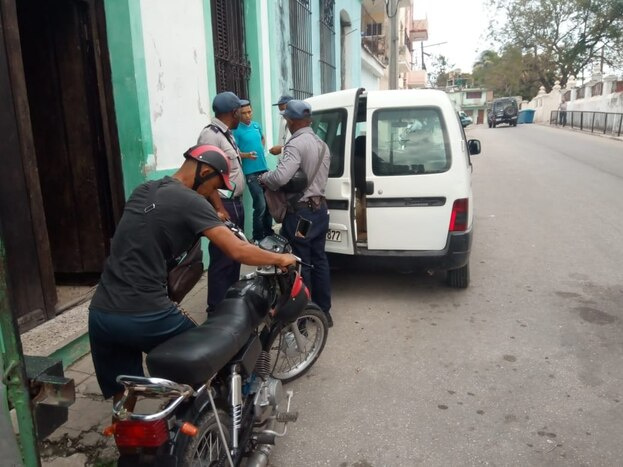They accuse “enemy platforms of sowing hatred” on social networks

14ymedio, Madrid, 28 June 2024 — State TV’s Round Table program convened a group of Cuba’s senior officials on Thursday to talk about violence and insecurity, two of the concerns that have emerged most strongly among citizens in recent years. The cast of guests included Colonel Eddy Sierra Arias, head of the General Police Directorate; Miriam Marbán González, first deputy comptroller general; Marcos Caraballo de la Rosa, deputy attorney general of the Republic; and Maricela Sosa Ravelo, vice president of the Supreme Court of Justice.
Having lost the monopoly on information and exposed the security problems that also affect the island, the authorities have had to face the facts and admit that Cuba is not as safe as they have been saying it is for decades.
Transparency, but not too much, thinks the Police, which has recently opted for the technique of providing on television the percentages of crimes tried – but not those reported – without offering the total figures. Thus, Caraballo de la Rosa broke down the data on cases punished on Thursday, namely: 94% of those accused of gender violence [femicide] were sentenced to more than 25 years in prison.
It is known that there were 182 restraining orders and 14 suspensions of custody of minors from these crimes
Of these crimes, it is known that there were 182 restraining orders and 14 suspensions of custody of minors. There was also a specific figure when talking about corruption: 122 cases resulted in a ban on working in the affected sector. “We have also confiscated cars and houses and carried out twelve exemplary trials. There are 702 people sanctioned with sentences that do not involve confinement who have had this measure revoked, based on the control actions that we also carried out to apply the greatest possible justice,” added Sosa Ravelo.
These were the sparsely significant figures offered, because the rest were again percentages. Of those accused of any crime 96% are punished, which proves to the judge how well investigations are carried out. Of “the most serious crimes” 78% are held in custody, she added, although she did not specify whether she was referring to violent or economic crimes, and it is even more complicated to determine the kind of people who make up the remaining 22% who are free. She did point out that in human trafficking and gender-based violence the rate of imprisonment is 100% and, wi


